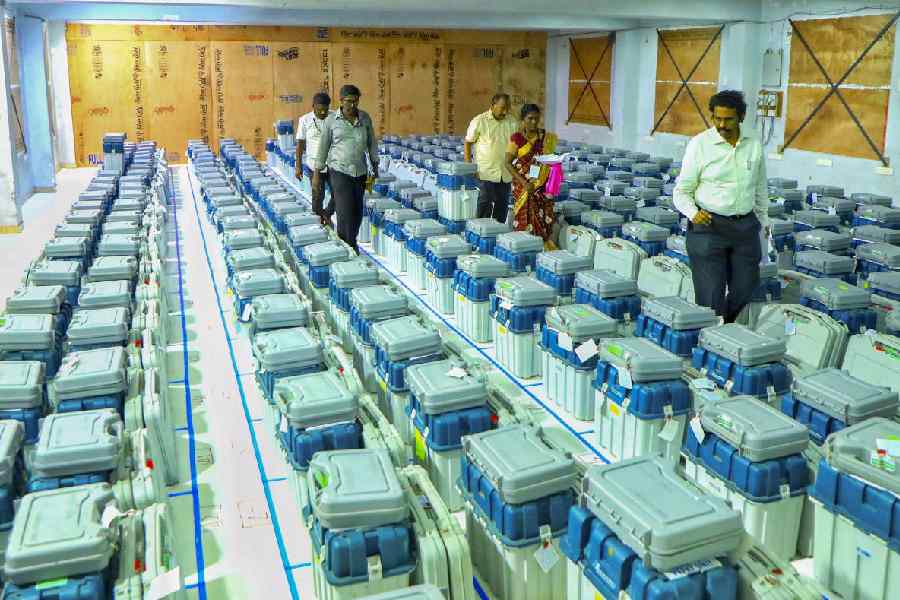Prime Minister Narendra Modi’s push to win more seats in the southern states has generated an intense ideological tussle in Tamil Nadu between the DMK’s “Dravidian model of governance” and “Modi’s guarantees”.
The DMK is projecting the BJP’s policies, from “one nation, one tax” (GST) to “one nation, one election”, as part of a model of over-centralisation.
In contrast, DMK campaigners say, their “federal, secular, culturally pluralistic and decentralised model” seeks to strengthen the Indian Union “from all sides”.
At rally after rally, DMK leader and chief minister M.K. Stalin has been talking of the “Dravidian model of governance showing the way to the rest of India”.
“This is a very important election to decide whether or not democracy will continue in India, whether or not India will continue to be a secular country,” Stalin said at Koradacheri.
“If the BJP comes back to power, the federal features of the Constitution, the
democratic system of governance and even the very existence of the states will be in jeopardy.”
Stalin has warned that the spectre of what happened to Jammu and Kashmir in 2019 — the scrapping of its special status and loss of statehood —“will haunt the other states including Tamil Nadu” if Modi wins a third term.
Stalin has been arguing that the Dravidian Model simply means “everything for everyone” — from reservations for the deprived to equitable access for all to education, healthcare, employment and other necessities.
The chief minister has been highlighting the social welfare schemes his government launched since returning to power in May 2021. Among these are monthly cash for women heads of households and girl students, a breakfast scheme for pupils of government primary schools, and free travel for women on state buses.
Modi has during his whirlwind poll campaign been questioning the achievements of the DMK and the Congress and accusing them of corruption and dynastic politics.
He has been citing how 40 lakh women in Tamil Nadu received free LPG connections in the last five years under the Centre’s Ujjwala Yojana, and how nearly 1 crore households in the state had benefited from tap water connections under the Centre’s Jal Jeevan Mission.
From the promotion of age-old cultural links between Varanasi and Tamil Nadu to the installation of a sengol in the new Parliament — even an infrastructure project for Tuticorin port — the Prime Minister has been showcasing all as examples of “Modi’s guarantees”.
“We will take Tamil Nadu and the country to new heights, that’s my guarantee,” he told the Salem rally.
In Mettupalayam on April 10, he said: “The Kongu region will see rapid all-round development if you elect four BJP candidates from this belt — K. Annamalai (Coimbatore), L. Murugan (Nilgiris), Vasantha Rajan (Pollachi) and A.P. Muruganandam (Tiruppur). This is Modi’s guarantee.”
Stalin has dismissed these “guarantees” as a “marketing gimmick”. He says the Modi government hasn’t kept a single promise, whether about transferring repatriated black money to every Indian’s bank account or about creating two crore jobs a year.
The biggest letdown apparently came during last December’s floods in Tamil Nadu. “Not a single rupee was released from the National Disaster Relief Fund,” Stalin says.
Tamil Nadu voted on April 19.











